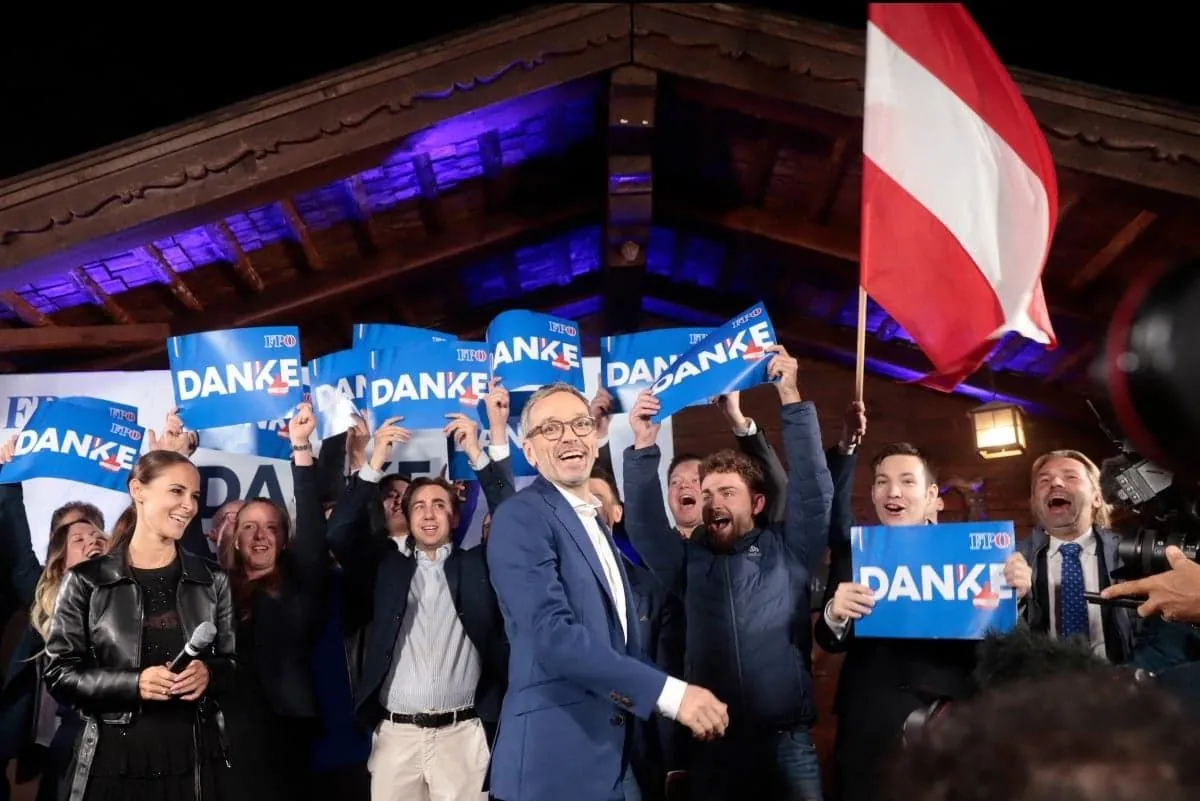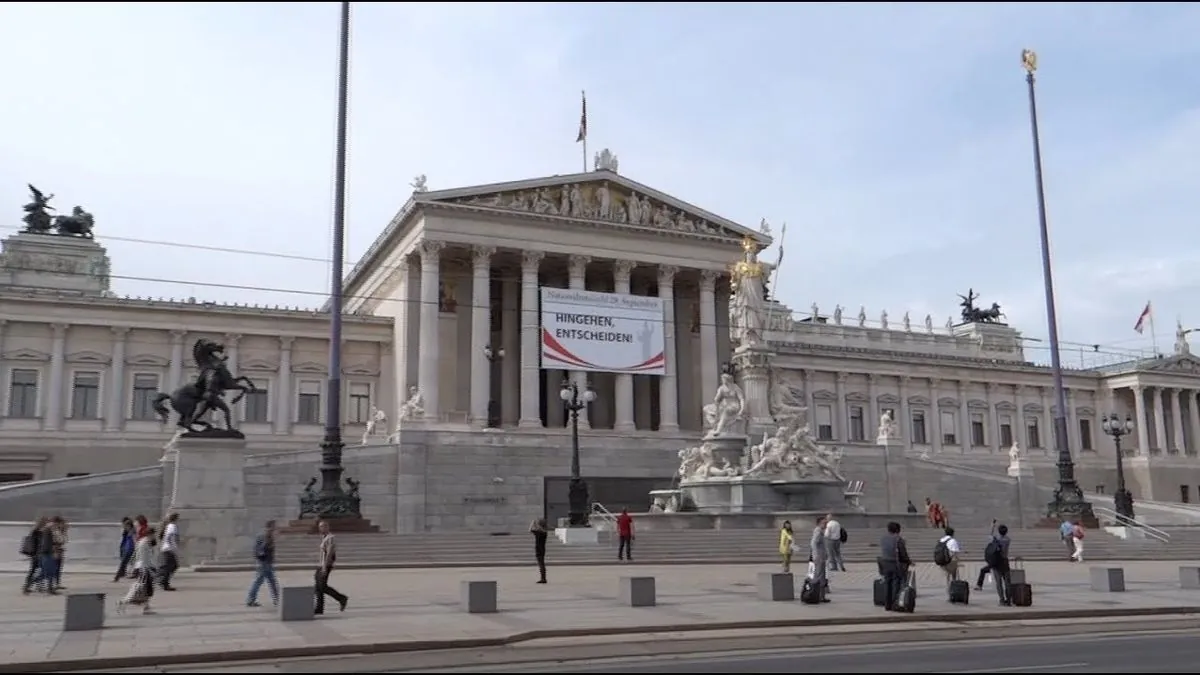Far-Right Triumph in Austrian Election Sparks European Debate
Austria's Freedom Party secures 29.2% in national election, raising concerns about coalition formation and potential shifts in European politics. Far-right leaders across the continent celebrate the victory.

In a significant political shift, Austria's Freedom Party has emerged victorious in the recent national election, securing 29.2% of the votes. This outcome, occurring on September 29, 2024, has sent ripples across Europe, prompting celebrations among far-right parties and raising questions about the future direction of Austrian and European politics.
The Freedom Party, led by Herbert Kickl, gained 13 percentage points compared to the 2019 election, marking a substantial increase in support. This success comes despite Kickl's controversial reputation and the party's hard-line stance on issues such as immigration and European Union policies.
Austria, a landlocked country in Central Europe with a population of about 9 million, has long been known for its rich cultural heritage and high standard of living. However, the recent election results suggest a growing dissatisfaction with mainstream politics and a shift towards more nationalist sentiments.

The election outcome has left Austria's political future uncertain. Forming a stable government may prove challenging, as other parties have expressed reluctance to work with Kickl. The two mainstream parties that have dominated Austrian politics since World War II now face a thin parliamentary majority, potentially necessitating a third partner to govern effectively.
European far-right leaders have enthusiastically welcomed the Freedom Party's success. Viktor Orbán, Hungary's Prime Minister, hailed it as "an historic victory," while Geert Wilders, whose party leads the Netherlands' new government, expressed optimism about the changing political landscape in Europe.
"This victory signals a growing desire for identity, sovereignty, and freedom across Europe."
The Freedom Party's triumph could potentially influence political discourse beyond Austria's borders. Paul Schmid, secretary general of the Austrian Society for European Politics, suggests that the party "will become a role model for Le Pen and others who also want to win elections and claim leadership in their respective countries."
Austria, which joined the European Union in 1995, has traditionally played a significant role in European affairs. The country's unique position, with its permanent neutrality declared after World War II, adds complexity to its political landscape. The Freedom Party's Euroskeptic and pro-Russian stance, including calls for an end to sanctions against Russia and criticism of Western military aid to Ukraine, could have far-reaching implications for European policy.
Kickl's leadership style and controversial statements have raised concerns among political observers. His provocative remarks, including labeling the Austrian President as a "mummy" and advocating for unproven COVID-19 treatments, have shocked the political establishment. Even the conservative Austrian People's Party, which has previously formed coalitions with the Freedom Party, considers Kickl a "security risk."
The Freedom Party, founded in 1956 by former Nazis, has a long and complex history in Austrian politics. Its recent success builds on a tradition of right-wing populism that has periodically influenced the country's political landscape.
As Austria grapples with the election results, the process of forming a new government is expected to be time-consuming and complicated. Political analyst Peter Hajek suggests that if Kickl is unable to secure the position of Austria's next leader, he may opt for opposition, potentially leading to a shaky coalition between mainstream parties.
The outcome of this election and its aftermath will likely have significant implications not only for Austria but for the broader European political landscape. As the country known for its Alpine beauty, rich musical heritage, and vibrant coffee house culture navigates this new political reality, the eyes of Europe remain fixed on Vienna, awaiting the next developments in this unfolding story.


































